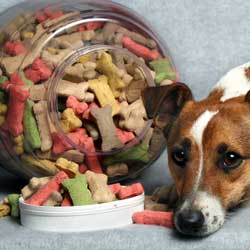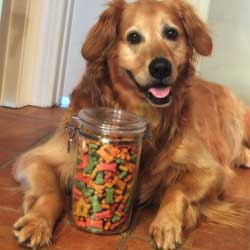Dental disease in pets is the leading health problem that veterinarians diagnose in both cats and dogs. There is no substitution for a professional dental cleaning and polishing performed by your veterinary health care team, but there are steps that you can take between cleanings to help improve your pet’s dental health and comfort.
Home dental care for your pets includes brushing the teeth, oral rinses, and dental diets and treats. Brushing your pet’s teeth is the single most effective means to maintaining oral health between professional dental cleanings. This makes sense because the bacterial film known as “plaque” is the cause of periodontal disease. This film is easily removed by the simple mechanical effect of brushing the teeth. Frequent (ideally daily) brushing is recommended to promote optimal dental health. Almost all dogs will eventually accept brushing. Some cats will also accept brushing. The key to success is to be patient and gradual in your approach. It is not necessary to open your pet’s mouth when brushing. The action of the tongue keeps the inside of tooth surfaces fairly free of plaque buildup. Simply inserting the toothbrush into the cheek pouch and brushing only the outer surfaces of the teeth will help to improve your pet’s dental health.
There are a variety of pet toothbrushes and pastes available. Avoid human toothpastes as they often contain abrasives and high-foaming detergents that should not be swallowed or inhaled by pets.
If your pet will not tolerate brushing, antibacterial dental rinses are another alternative. While not as effective as mechanical brushing, dental rinses do a good job of reducing the bacteria that causes plaque and tartar to form on pets’ teeth.
Several “dental diets” have been shown to be of some benefit in decreasing dental disease. Some work by using a specific kibble design that helps to physically remove plaque and tartar from the teeth and others contain a chemical anti-tartar ingredient.
Dental chew treats can be helpful if chewed daily, and some rawhide chews and biscuits contain an anti-tartar ingredient. Be sure to monitor your pet’s chewing activity and discard chews and treats that become small enough to be a choking hazard.
Using a combination of brushing, a dental rinse, and dental foods or treats may work for you and your pet.






